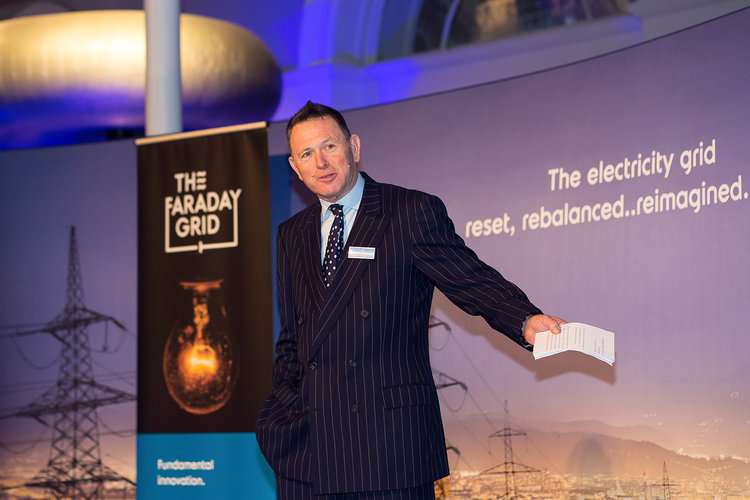The Faraday Grid collapsed owing almost £6 million to electronics manufacturing giant Foxconn, as well as hundreds of thousands of pounds to PR agencies, IT vendors, travel agents and software companies.
New documents released as part of the firm’s administration process reveal that creditor claims totaling nearly £8 million have been filed, while the firm received just £600,000 as part of a deal to sell its assets and intellectual property.
Faraday Grid’s statement of affairs has been filed by the company’s administrator Grant Thornton, which reveals the extent of the firm’s indebtedness around the time it filed for administration in early August.
Having been introduced by the company’s solicitor Baker Botts on 2 August 2019, Grant Thornton signed a letter of engagement to provide critical cashflow advice and other financial services three days later.
During that time, Faraday Grid received an “adverse” decision regarding follow-on investment and, with no other talks forthcoming, the company was left to conclude that it was unable to trade further.
Grant Thornton also concluded that a rescue of the company was not feasible as the research and development of its exchanger technology was not complete. This resulted in the firm seeking a sale of its assets – typically IT, fixtures and fitting and its intellectual property – to settle outstanding creditors.
The Statement of Affairs submitted last week reveals that Faraday Grid collapsed with more than £8 million in preferential and unsecured creditors, the majority of which are unsecured.
Around £130,000 of outstanding employee wages and holiday pay is secured and therefore likely to be paid, however a further £922,000 in other employee claims looks unlikely to be fulfilled. These consist of contractual rights, unpaid expenses and other claims against the company.
Meanwhile, the largest unsecured creditor is multinational electronics manufacturing firm Foxconn. Faraday Grid launched a Czech subsidiary in April this year and entered into an agreement with 4Tech – a subsidiary of Foxconn – to acquire manufacturing facilities in the country. This agreement was backed by a parent guarantee, which is listed by Grant Thornton as having an estimated liability of around £5.3 million.
Other debts listed within the statement of affairs include around £600,000 to HM Revenue & Customs in outstanding taxes, while tens of thousands of pounds remain owed to a list of PR agencies, recruitment firms, IT providers and travel agents.
One of the most significant sums owed – more than £177,000 – is to Two Bulls, a software development agency co-located in both New York and Melbourne, Australia.
A portion of those debts will be settled using the proceeds from the sale of Faraday Grid’s assets and IP, which it concluded last month by agreeing to a sale to Third Equation, a company launched by ex-Faraday Grid chief executive Andrew Scobie, a deal first reported by Current±.
Grant Thornton has now revealed that of 19 parties to express an initial interest in those assets, around eight were granted access to additional information prior to making a formal offer. Only a “limited number of offers” were forthcoming, however, and the administrators ultimately settled on Third Equation’s owing to it being the “most deliverable and highest return”.
The statement of affairs now reveals that Third Equation paid around £140,000 for Faraday Grid’s IT systems, a further £220,000 for fixtures and fittings and around £101,000 for the firm’s intellectual property. The deal was however also contingent on two directors, believed to be Andrew Scobie and Jacqueline Porch, settling outstanding loans to the tune of £138,000.
As a result, the net benefit of the deal is closer to £600,000.
The next steps for the administrator will be to settle as many claims as possible using any and all proceeds, which includes ~£1.6 million held in various HSBC bank accounts.
An update is slated for publication in February 2020.





